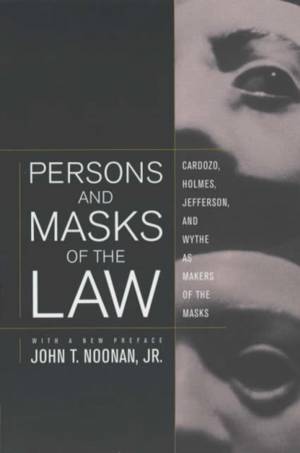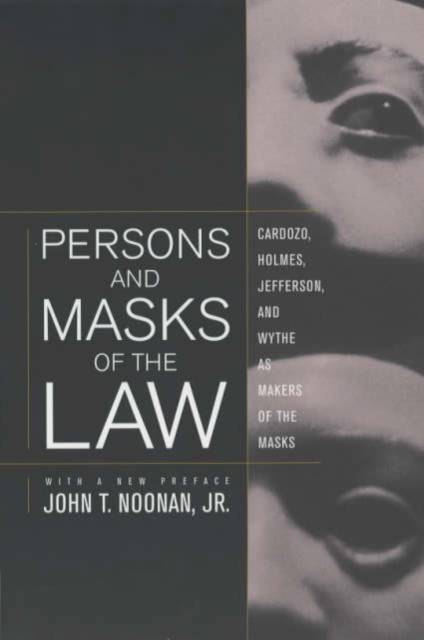
- Afhalen na 1 uur in een winkel met voorraad
- Gratis thuislevering in België vanaf € 30
- Ruim aanbod met 7 miljoen producten
- Afhalen na 1 uur in een winkel met voorraad
- Gratis thuislevering in België vanaf € 30
- Ruim aanbod met 7 miljoen producten
Zoeken
Persons and Masks of the Law
Cardozo, Holmes, Jefferson, and Wythe as Makers of the Masks
John T Noonan
Paperback | Engels
€ 50,95
+ 101 punten
Omschrijving
Legal thought in this country has always focused on the rules rather than on the persons affected by the rules. Persons and Masks of the Law restores the balance by taking a person-centered view of the law. The author shows how even great jurists have chosen the "masks of the law" over persons, his surprising examples being Thomas Jefferson, George Wythe, Benjamin Cardozo, and Oliver Wendell Holmes, Jr.--four of the greatest lawyers of the United States.
Noonan discusses how the concept of property, applied to a person, is a perfect mask since no trace of human identity remains. An auction of slaves in Virginia, the takeover of a banana plantation in Costa Rica, and an accident on the Long Island railroad are the famous cases involving these four legal giants. The stories of the litigations at three different periods of our history provide and new and powerful analyses of American law. This book, breaking through the formalism in which jurisprudence is enshrined, offers a new vision of law and represents a call for reform in the education and even behavior of lawyers.
Noonan discusses how the concept of property, applied to a person, is a perfect mask since no trace of human identity remains. An auction of slaves in Virginia, the takeover of a banana plantation in Costa Rica, and an accident on the Long Island railroad are the famous cases involving these four legal giants. The stories of the litigations at three different periods of our history provide and new and powerful analyses of American law. This book, breaking through the formalism in which jurisprudence is enshrined, offers a new vision of law and represents a call for reform in the education and even behavior of lawyers.
Specificaties
Betrokkenen
- Auteur(s):
- Uitgeverij:
Inhoud
- Aantal bladzijden:
- 227
- Taal:
- Engels
Eigenschappen
- Productcode (EAN):
- 9780520235236
- Verschijningsdatum:
- 29/05/2002
- Uitvoering:
- Paperback
- Formaat:
- Trade paperback (VS)
- Afmetingen:
- 141 mm x 208 mm
- Gewicht:
- 312 g

Alleen bij Standaard Boekhandel
+ 101 punten op je klantenkaart van Standaard Boekhandel
Beoordelingen
We publiceren alleen reviews die voldoen aan de voorwaarden voor reviews. Bekijk onze voorwaarden voor reviews.








